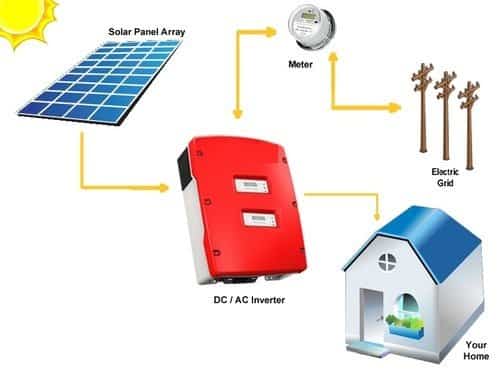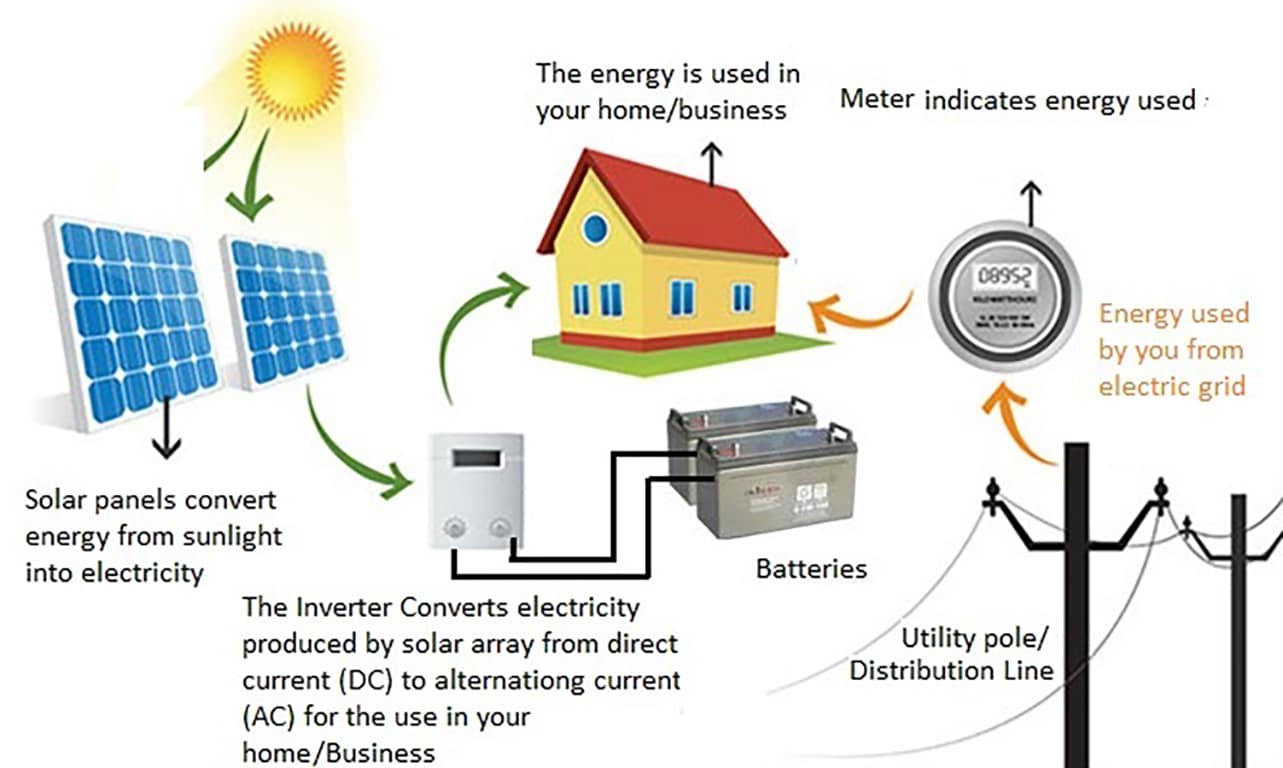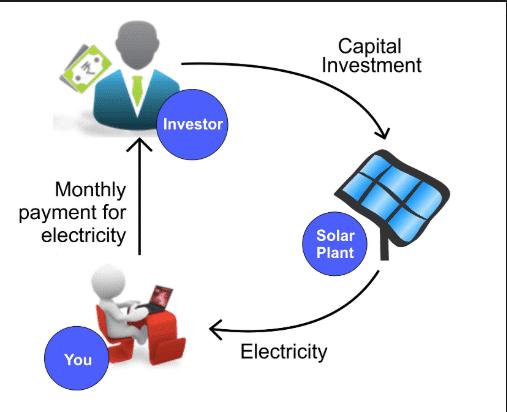Note : Solar Panel Installations System can be done in multiple ways :

On-grid or grid-tie solar systems are by far the most common and widely used by homes and businesses. These systems are connected to the public electricity grid and do not require battery storage. Any solar power that you generate from an on-grid system (which is not used directly in your home) is exported onto the electricity grid and you usually only pay for the electricity that you consume in excess to the one produced by your solar power generating system.

An off-grid system is not connected to the electricity grid and therefore requires battery storage. An off-grid solar system must be designed appropriately so that it will generate enough power throughout the year and have enough battery capacity to meet the home’s requirements, even in the depths of winter when there is less sunlight. The high cost of batteries and inverters means off-grid systems are much more expensive than on-grid systems and so are usually only needed in more remote areas that are far from any electricity grid. However battery costs are reducing rapidly, so there is now a growing market for off-grid solar battery systems even in cities and towns.

A PPA is a long term agreement between you and a solar provider and/or installer to “lease” your roof / land in return for a lower energy bill. The installer will typically provide the panels, installation, and maintenance at zero cost to the homeowner, and in return the provider becomes your new utility provider. This same concept can be done on top of industrial roofs, commercial roofs, societies, etc.
While you do not save as much with a PPA as you would purchasing a system outright, it does mean that homeowners who never would have gone solar are able to lock in savings for 12+ years over what they would pay a utility company.












